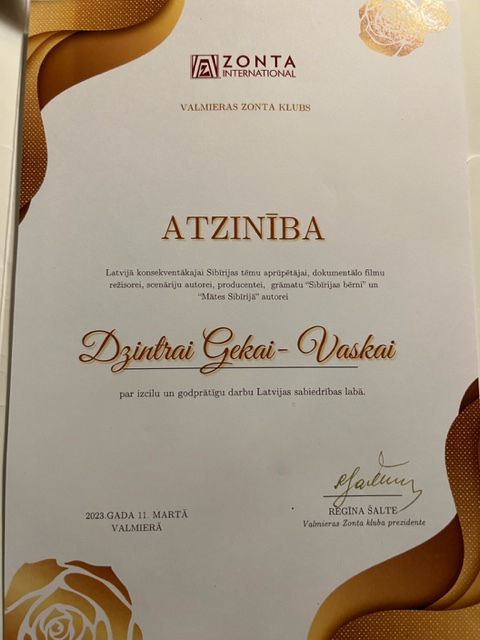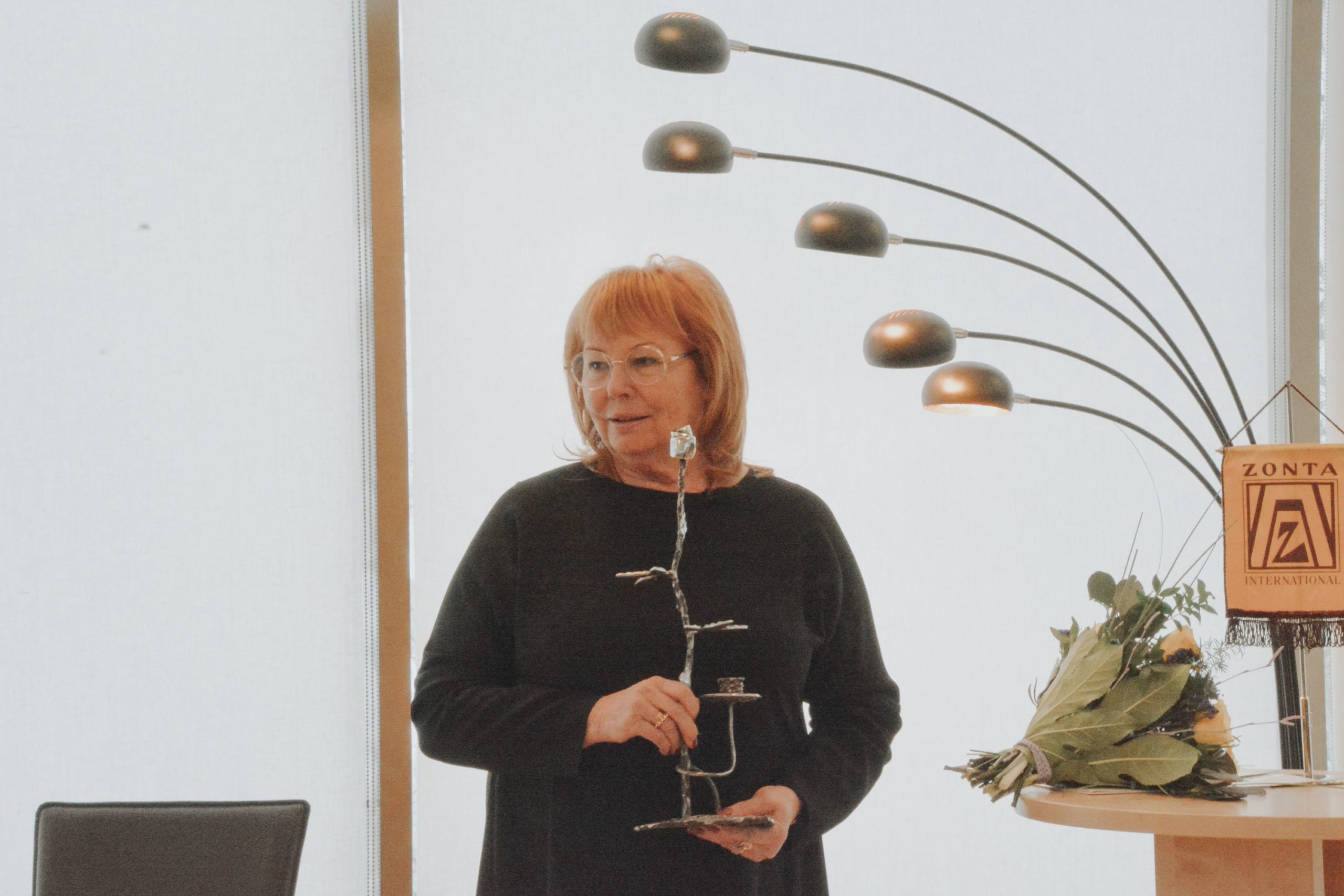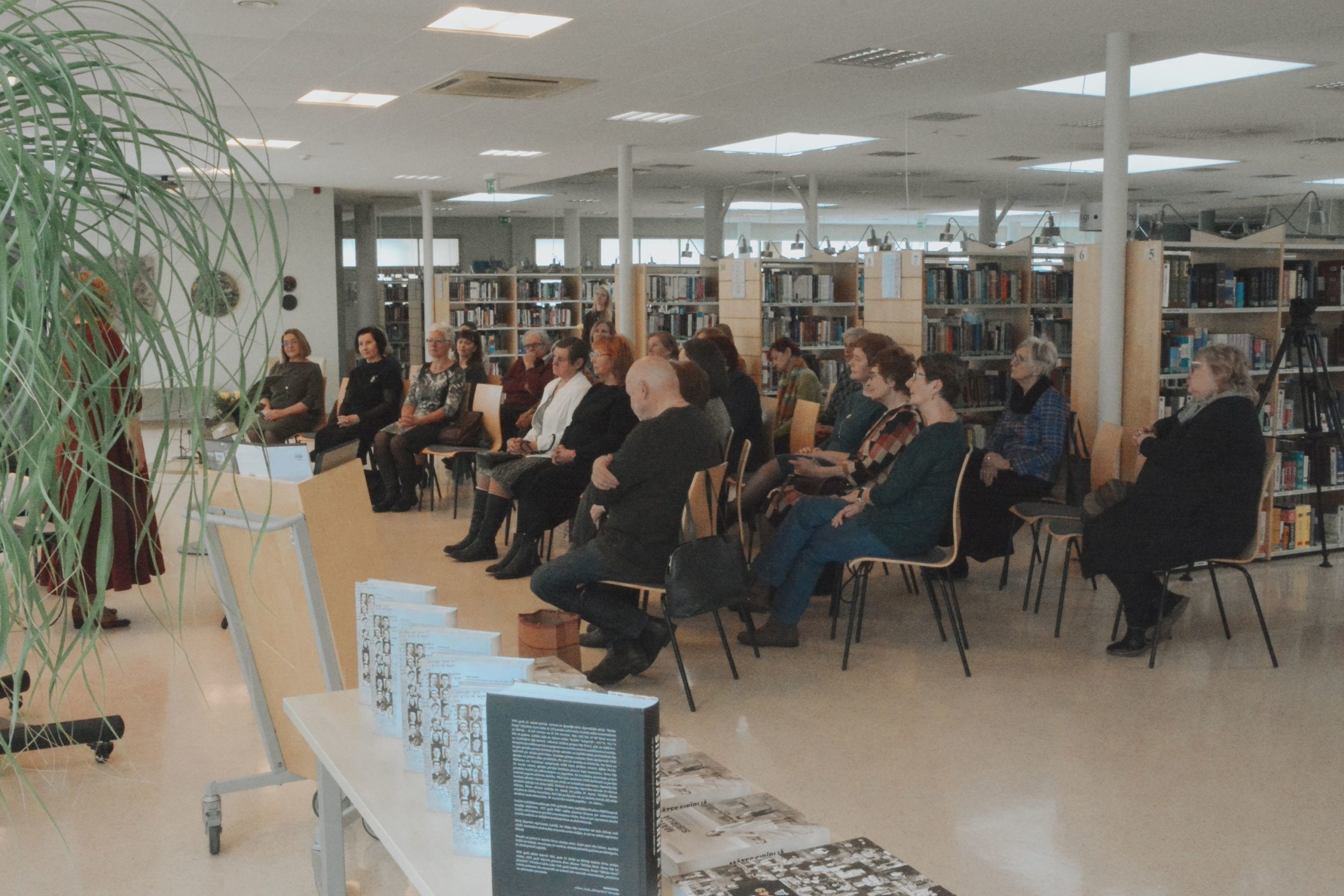About the 2023 schoolchildren’s essay competition, which once again, so that the facts do not disappear from the memories of Latvian history, is organized by the “Children of Siberia” foundation.
 This year, unlike the essays of previous years, a new breeze can be felt. If earlier, when writing about the dark years of exile, people’s suffering, their strength to overcome it and to do everything to save those who cannot stand on their own, figured in the main place, then new features appear in these works. It could be said that they show warning signs that, according to the ancient folk saying that the wolf sheds a feather, but does not change; virtue, there is concern that the violence of the cruel, treacherous neighbor may escalate again. Today, this is confirmed by the invasion of the great Russia into the peaceful Ukraine. About what? Why? It is good that our young people have not remained on the sidelines as indifferent spectators. It’s good if they also have thoughts about what a “friendly” neighbor we have in the east. Is it really possible to find a logical explanation for all that is happening? Can’t and shouldn’t. It is commendable that many of the essays contain harsh thoughts about the need to do everything to end this horror.
This year, unlike the essays of previous years, a new breeze can be felt. If earlier, when writing about the dark years of exile, people’s suffering, their strength to overcome it and to do everything to save those who cannot stand on their own, figured in the main place, then new features appear in these works. It could be said that they show warning signs that, according to the ancient folk saying that the wolf sheds a feather, but does not change; virtue, there is concern that the violence of the cruel, treacherous neighbor may escalate again. Today, this is confirmed by the invasion of the great Russia into the peaceful Ukraine. About what? Why? It is good that our young people have not remained on the sidelines as indifferent spectators. It’s good if they also have thoughts about what a “friendly” neighbor we have in the east. Is it really possible to find a logical explanation for all that is happening? Can’t and shouldn’t. It is commendable that many of the essays contain harsh thoughts about the need to do everything to end this horror.
Kaspars Pūce

Thank you to everyone who participated in the creative contest. Thank your teachers for informing and encouraging you. But the teachers could talk and talk, if you weren’t interested in yourself, nothing meaningful could come of it. As in every competition, there are more successful and less successful works. Addressed by those where you are truly yourself, so if in the future this topic does not seem interesting to anyone, write! This will be your personal opinion. Your thoughts will have supporters and doubters, but you will be genuine and touch the subject from the heart. Nowhere is there a law that says – you don’t need to write it! Many of your works are memorable. They are mostly based on your family stories. And the feeling is that you yourself have been present at these terrible events. What were people deported for? Because they loved the land of their fathers, worked for it. Believed in the idea of a free state of Latvia. Didn’t give it away!
Do we also believe in Latvia? No need to answer with a loud: yes! The main thing is to build it. May you all have a bright path as you open the door to the future.
Valdis Lūriņš
Like this:
Like Loading...


 This year, unlike the essays of previous years, a new breeze can be felt. If earlier, when writing about the dark years of exile, people’s suffering, their strength to overcome it and to do everything to save those who cannot stand on their own, figured in the main place, then new features appear in these works. It could be said that they show warning signs that, according to the ancient folk saying that the wolf sheds a feather, but does not change; virtue, there is concern that the violence of the cruel, treacherous neighbor may escalate again. Today, this is confirmed by the invasion of the great Russia into the peaceful Ukraine. About what? Why? It is good that our young people have not remained on the sidelines as indifferent spectators. It’s good if they also have thoughts about what a “friendly” neighbor we have in the east. Is it really possible to find a logical explanation for all that is happening? Can’t and shouldn’t. It is commendable that many of the essays contain harsh thoughts about the need to do everything to end this horror.
This year, unlike the essays of previous years, a new breeze can be felt. If earlier, when writing about the dark years of exile, people’s suffering, their strength to overcome it and to do everything to save those who cannot stand on their own, figured in the main place, then new features appear in these works. It could be said that they show warning signs that, according to the ancient folk saying that the wolf sheds a feather, but does not change; virtue, there is concern that the violence of the cruel, treacherous neighbor may escalate again. Today, this is confirmed by the invasion of the great Russia into the peaceful Ukraine. About what? Why? It is good that our young people have not remained on the sidelines as indifferent spectators. It’s good if they also have thoughts about what a “friendly” neighbor we have in the east. Is it really possible to find a logical explanation for all that is happening? Can’t and shouldn’t. It is commendable that many of the essays contain harsh thoughts about the need to do everything to end this horror.



































 Ar šo konkursu vēlamies rosināt skolēnos interesi par Latvijas vēsturi, par 1941. gada 14. jūnija deportāciju, kuras rezultātā cieta 15425 Latvijas iedzīvotāji, par 1949. gada deportāciju, kad uz Sibīriju tika aizvesti vairāk kā 42 tūkstoši cilvēku. Par 1944. gadu, kad atkārtotas deportācijas draudu un frontes tuvošanās iespaidā vairāk kā 200 tūkstošu Latvijas pilsoņu devās bēgļu gaitās uz rietumiem. Vēlamies mudināt skolēnus izzināt mūsu valsts un savas ģimenes vēsturi, stiprināt skolēnos patriotisma jūtas un piederības sajūtu Latvijai.
Ar šo konkursu vēlamies rosināt skolēnos interesi par Latvijas vēsturi, par 1941. gada 14. jūnija deportāciju, kuras rezultātā cieta 15425 Latvijas iedzīvotāji, par 1949. gada deportāciju, kad uz Sibīriju tika aizvesti vairāk kā 42 tūkstoši cilvēku. Par 1944. gadu, kad atkārtotas deportācijas draudu un frontes tuvošanās iespaidā vairāk kā 200 tūkstošu Latvijas pilsoņu devās bēgļu gaitās uz rietumiem. Vēlamies mudināt skolēnus izzināt mūsu valsts un savas ģimenes vēsturi, stiprināt skolēnos patriotisma jūtas un piederības sajūtu Latvijai.






